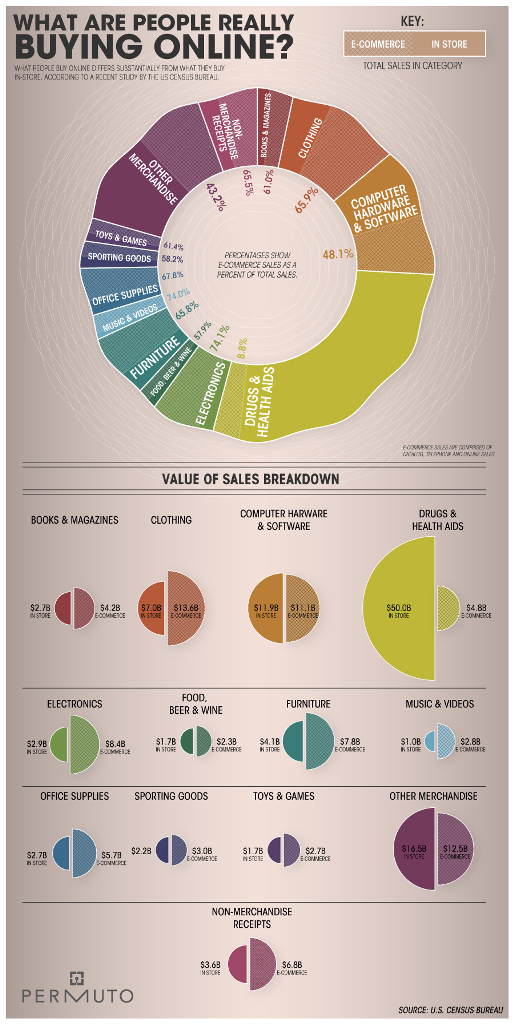Niche online marketplaces- Here’s why there are so many e-shops out there …
When I see people around me shopping online; I see a pattern. They are very sure of what they want to buy and where they want to buy it from. A friend of mine always buys her home furnishings from Fabfurnish.com, her party wear from Stalkbuylove.com and quirky gifts from Chumbak.com. Wouldn’t she rather buy them all at a ‘one stop shop’ like eBay, flipkart or amazon? The answer is no. Also, my pregnant friend would rather buy maternity clothes on firstcry.com rather than Jabong.com and someone buying jewellery would look at caratlane.com rather than Shopping.Indiatimes.com!!
Rise of Niche Marketplaces in India
The emergence of niche marketplaces in the online world is because of what the online customer demands today. Customers are looking for specialised and professional service that would deliver unique offerings rather than a generalised one. We don’t need to travel to different stores, look for parking slots and stand in long queues to achieve this; all we need to do is type a different URL every time we know what exactly we want, and ten different delivery guys will be at our doorstep!
The retail business in India has found much success in Multi-brand store formats that sell anything from a pin to a piano; but the dynamics in the online business ecosystem is trending in a different direction. One main reason for this is the rate at which the e-commerce sector is getting over crowded; new players need to offer a robust value proposition to have a strong foothold in the marketplace; this comes with intensely focusing on vertical product categories. There are roughly 360 e-commerce sites operational in the country, and in the last few months 20-30 new ventures have come up catering only to a single-product vertical.

Source: progressforge
In an interview with Forbes India, Urban Ladder COO & Co-Founder Rajiv Srivatsa said vertical players possess a clear value proposition & are easily recalled for having a focused positioning. A report quoted him saying, “Business economics and margins work better for vertical players as they need a smaller scale to get to profitability. Also, solutions can be specifically designed from product to digital experience to marketing for the specific target audience.”
Businesses know what exactly shoppers are looking for when they come online; then why not make a niche market offering in those sectors? Sreeja, a keen online shopper says “I find it very convenient to buy my undergarments via sites like Zivame.com and Prettysecrets.com; as they focus on only selling lingerie. They ensure there is a lot of choice and always have sizes that are not usually standard. I wouldn’t find that on other big ecommerce stores.”

Are they profitable?
While big stores always have the tendency to get very general by trying to serve every need; it makes financial sense when it comes to development, maintenance and marketing of the website. Also, these e-commerce giants debate that the beauty of having such shops is satisfying consumers with all products in the same place. They also benefit by cross selling and upselling different products to their clientele. However, Ameet Bhuvan, a young professional says “I found it amazing to see how product focused e-commerce sites like Lenskart changed the way I shopped for my Glasses. I would never have dreamt of buying them online if not for Lenskart. They make the process so simple and convenient; and I get to pick from an array of frames after figuring out what suits me; sitting at home. I also find deals on these sites better than a ‘Flat 40% off’ on bigger e-commerce sites”
Many customers like Ameet are happy with the service. Commenting on this, Peyush Bansal, founder and CEO, lenskart.com says “A single vertical product model can be extremely lucrative if one is working within a highly profitable niche. For instance, the idea of Lenskart.com was incepted keeping in mind the market demand for branded/non branded eyewear in the country. A third of India’s total population needs spectacles today. By using the word ‘need,’ I am referring to people who have some or the other eye-related problem and not those who use eyewear only as a fashion accessory. Only 25 per cent of these people actually wear spectacles. We knew that if we are able to deliver eyewear solutions across the length and breadth of the country and plug the gap in the market, this niche could prove to be very advantageous.”
Niche businesses are thriving because of the limitations of physical retailing and the rise of aspirations of India. Today even cities like Kanpur get customised toddler accessories, shoes and toys from stores like babyoye.com and women in Agra buy trendy sandals via Labriza.com, an e-commerce store only for ladies footwear!
While aggregator businesses in e-commerce usually have more ‘likes’ and ‘fans’ on social media, the engagement and interaction that happens via niche businesses is more personal and thematic. Social Media strategies and Marketing communication of aggregator sites and niche sites also differ. While the former concentrates on masses and brand building, the latter focuses on personalisation and engagement. “Niche business models are on the rise in the Indian e-commerce space, as they are proving to be highly viable in cases where the e-tailer is able to add value across multiple fronts. Niche websites usually show a higher level of engagement with the customer, leading to repeat visits. Their identity gets solidly defined and embedded in the consumer consciousness with their product-specific communication and personalities. Therefore, they become the go-to store for their particular niche, attracting greater sales.” adds Peyush Bansal.
While celebs are associated with mega online stores, many of them are looking at endorsing or even investing in niche marketplaces. Karishma Kapoor is the single largest individual shareholder for babyoye.com; Sunny Leone is the face of the online adult store IMBesharam.com and divas like Sussanne Roshan, Malika Arora Khan and Bipasha Basu aim to build India’s first Celeb ‘editorial’ e-commerce brands- The Home Label, The Closet Label and The Trunk Label respectively. No doubt all of these are niche offerings, targeted at niche audiences; they seem to be in popular demand. As part of an article on Nextbigwhat, Karishma Kapoor writes “As a first-time mother, I often longed for a really trusted support system, that I could turn to whenever I needed something, for myself or my baby. A service I could rely on for the best, in products as well as advice.” She was not looking for a generalised website that sells all household items; but a marketplace that would prioritize in satisfying her needs in one department.
Venture Capitalists favour them too
Even, Venture Capitalists are chasing vertical category stores fiercely. After fuelling the growth of the $3.2-billion Indian e-commerce industry, venture capitalists are now focusing on specialized and niche portals. Experts are of the view that as the market matures, online consumers will look for portals that cater to their exact needs without getting distracted by other offers.

Portals such as BlueStone (gold and diamond jewellery), Bluegape (fan-based merchandise), Lenskart (eyewear retailer), Pepperfry (furniture), GreenDust (refurbishment), OnEMI (that sells only on instalments), Ohmysecrets (sexual wellness) and Zivame (lingerie), amongst others, have successfully raised VC funds in the last 18-24 months.
In an interview with Hindu BusinessLine, Siddharth Talwar, Partner at VC firm Lightbox says “We are looking for spaces that are niche but have the potential to have significant volume in the future. Within these spaces, we need to find companies that significantly differentiate themselves from broader companies.” According to Mukul Arora, Partner at Venture Capital firm Saif Partners, broad-based players are more volume-driven whereas niche-portals are more value-driven. He says the repeat customer base in the latter is as high as 50 per cent due to better pricing and wider collection. “We will witness more players in the coming months. Niche e-commerce will be the next big thing in India as customers demand more personal attention,” adds Arora.
Niche marketplaces are definitely trending and are also fighting for the top positions in the list of ecommerce giants. The founders, VC’s and even the celebs seem to endorse this format of e-commerce in the ecosystem; this would definitely translate into better services and offerings to us customers. And then again we will just click on a different website link, every time we want to ‘handpick’ something unique and a delivery boy will ring our doorbells!
About Author

Leave a Comment